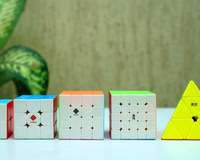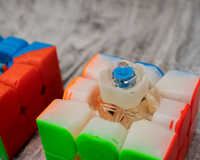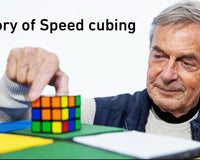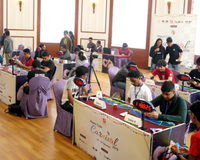Introduction
For centuries, puzzles have captivated our minds, from ancient riddles inscribed on temple walls to modern-day challenges like Rubik's Cubes and Sudoku Puzzles that millions love! But what is it about these brain teasers that draws us in so irresistibly? The psychology behind puzzle solving is a fascinating blend of cognitive rewards, emotional satisfaction, and social interaction that fuels our love for puzzles.
The Attraction to Puzzles
Puzzles provide a clear goal - solve the problem. This simplicity offers a contrast to the often ambiguous goals we encounter daily. Puzzles are also inherently rewarding; solving a puzzle triggers a psychological boost, including the release of dopamine, the brain’s reward chemical.

Cognitive Stimulation and Mental Exercise
At the heart of our attraction to puzzles lies a natural human desire for cognitive stimulation. Puzzles—whether Crosswords, Sudoku or a Daily Calendar Puzzle—create a playground for the brain. They demand engagement in problem-solving, logical reasoning, and pattern recognition.

Consider the Rubik's Cube: solving it involves understanding its complex structure and manipulating its pieces to achieve the solved state. This challenge activates multiple brain areas, including those responsible for memory, planning, and motor skills. The mental workout provided by puzzles keeps our minds sharp and can even improve cognitive functions over time.

The Pleasure of Problem-Solving
The psychological concept of "flow" is crucial in understanding why we enjoy puzzles. Flow, as described by psychologist Mihaly Csikszentmihalyi, is a state of deep immersion and focus where time seems to fly by. Puzzles can induce this state by providing a balance between challenge and skill. When we solve a challenging puzzle, we experience a sense of mastery and accomplishment, which releases dopamine—a neurotransmitter associated with pleasure and reward.
This rewarding sensation is why people can spend hours working on a complex jigsaw puzzle or tackling a challenging logic problem. Many friends and family members of puzzle enthusiasts are baffled by how interested the person seems while solving puzzles! This is because the gradual progress towards a solution, filled with moments of insight and understanding, creates a continuous feedback loop of satisfaction.

The Social Aspect of Puzzle Solving
Puzzles also serve as a medium for social interaction and collaboration. Puzzles, such as the Rubik’s Cube, often have meetups and competitions where speedcubers can compete with each other in a very friendly environment. This environment is the social aspect of the desire towards puzzle solving. These activities strengthen social bonds and foster teamwork.
The social aspect is evident in puzzle competitions and clubs, where like-minded individuals gather to challenge themselves and each other. This community aspect provides additional motivation and a sense of belonging, further enhancing the appeal of puzzles.

The Emotional and Psychological Benefits
Beyond cognitive stimulation and social interaction, puzzles offer significant emotional and psychological benefits. They can serve as stress relievers, providing a distraction from everyday worries and an opportunity to focus on something enjoyable.

The process of working through a puzzle can be meditative, allowing the solver to enter a state of calm concentration. Moreover, the sense of achievement that comes from solving a difficult puzzle boosts self-esteem and confidence. Each completed puzzle serves as a reminder of one's problem-solving abilities and patience.
Why We Keep Coming Back
The challenge of puzzles, especially something as complex as the Rubik’s Cube, compels us to return. The human brain craves novelty, and puzzles provide a source of endless new problems to solve.
Conclusion
The psychology behind puzzle-solving is a complex mix of cognitive engagement, emotional satisfaction, and social interaction. Whether it's the baffling challenges of a Rubik's Cube, endless combinations of a Calendar puzzle or wordplay of a crossword, or the logical deduction of a Sudoku, puzzles offer something for everyone.
They not only provide mental stimulation and emotional rewards but also foster social connections and a sense of accomplishment. This all-around appeal explains why puzzles continue to be a much-loved pastime for people of all ages.






























